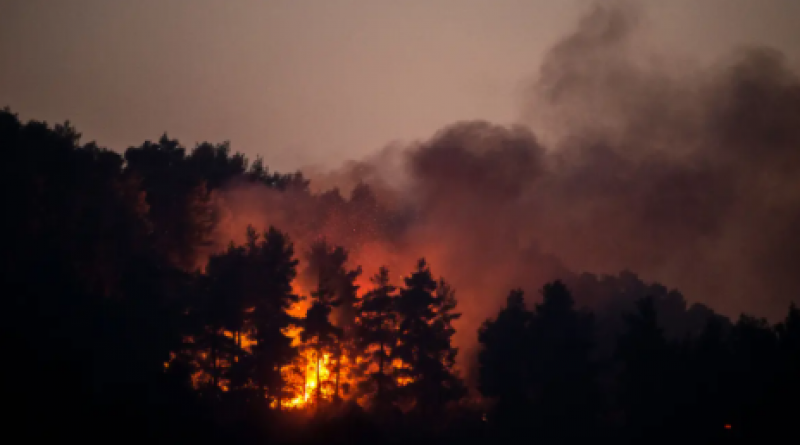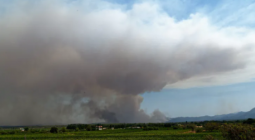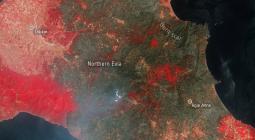‘Lucifer’ heat dome is causing wildfires and record-breaking temperatures in Europe

The hot, dry weather has been brought on by a weather phenomenon known as an anticyclone
An anticyclone named ‘Lucifer’ sweeping across Europe is set to bring further record-breaking temperatures and wildfires.
Countries in the south of the continent have been battling blazes for some weeks now, and it is expected that the hellish conditions will likely spread beyond Turkey, Italy and Greece to Spain, Portugal and France.
The hot, dry weather has been brought about by a weather phenomenon known as an anticyclone, causing a “heat dome”, and originating in this instance from north Africa.
A heat dome forms in an area of high atmospheric pressure, in which air sinks instead of rising, compressing as it descends.
Because of this no clouds form, and instead the hot air is trapped within the “dome”, bringing blistering temperatures to the area.
The Met Office says anticyclones are not unusual for this time of year, although the high temperatures, caused by a number of factors, are.
Meteorologist Chris Almond said: “With climate change, we are expecting, and are already seeing, more frequent and severe events, and will continue to do so in the future.”
“Lucifer” has produced what is believed to have been the hottest day ever recorded in Europe, with temperatures of 48.8C measured in Sicily, Italy, on 11 August.
The Met Office has warned that even higher temperatures, exceeding 50C, are not impossible as the climate warms up.
Professor Peter Stott, Met Office lead on climate attribution, has studied European heatwaves for nearly two decades, and says it’s clear climate change has made the current wildfires more extreme.
Prof Stott said: “The chance each summer of seeing really extreme temperatures is pretty high now. We can’t say when it is likely to happen, but Europe will need to prepare for the eventuality of further records being broken, with temperatures above 50C being possible in Europe in future.”
The hot, dry conditions seen across southern Europe are expected to move into Iberia in the coming days, with Mr Almond warning that temperatures aren’t expected to decrease until next week.
He added: “Adverse human health impacts are likely, particularly to those exposed to the extreme heat for prolonged periods, or those who are part of vulnerable population groups.
“This is combined with poor air quality in some places due to ongoing wildfires and smoke.”
August 2021
INDEPENDENT




